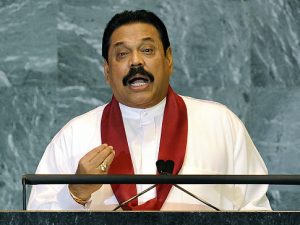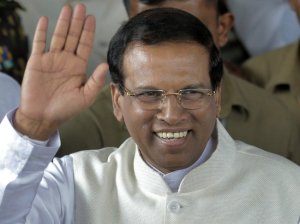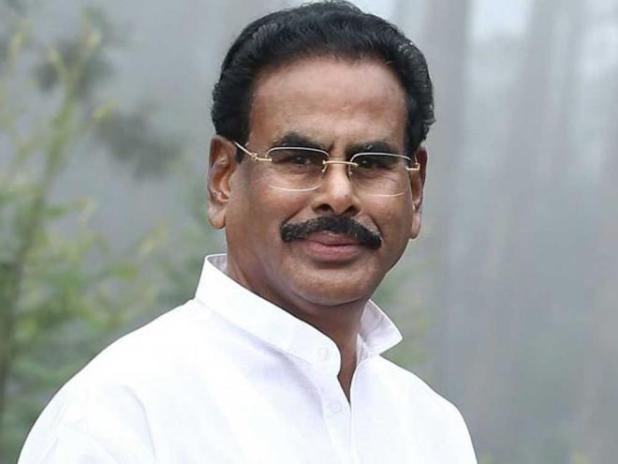

E.T.B. SIVAPRIYAN
History has come a full circle for the tiny island of Sri Lanka in just a decade. It was the boycott of the Sri Lankan Presidential election in 2005, roughly 10 years ago, by Tamils living in the then war zone of Northern Province, blindly following the diktat of the ever-feared LTTE’s Velupillai Prabhakaran, which spawned the victory of the then light weight and little-known Mahinda Rajapaksa over a moderate Ranil Wickramasinghe.
Nearly ten years later and six years after the end of the bloody civil war that consumed more than 70,000 lives including that of Prabhakaran and his senseless cadre who mercilessly bombed civilians to escape the onslaught of the Sri Lankan Army, it is the same Tamils who have now ensured the decisive defeat of Rajapaksa in the 2015 Presidential Elections through their overwhelming participation in the democratic exercise.
If the LTTE had allowed the Tamils to vote in the 2005 Presidential elections, Rajapaksa would have never been able to make it to Temple Trees, the official residence of the President of Sri Lanka. By not allowing the Tamils to vote in favour of Wickramasinghe, the megalomaniac Prabhakaran dug his own grave.
His calculation that Rajapaksa would be a weak President went horribly wrong and he became his biggest nemesis, finally taking his life, which was once considered precious by Tamils across Sri Lanka.
The decade went by saw the lightweight Rajapaksa transforming into a soft dictator, amassing unparallel power and wealth besides defeating the once all powerful Tamil Tigers with the help of a ruthless Sarath Fonseka, the Army General who led the commanders from the front in ensuring that terrorism is buried once for all in the island.
After the war, Fonseka challenged Rajapaksa in the 2010 Presidential Polls, which he eventually lost and found himself behind the bars for alleged treachery.
As if to undo the historic blunder they committed a decade back, Tamils in the north and eastern provinces of Sri Lanka came out in droves on Thursday to ensure that Rajapaksa bites the dust in the epic polls to none other than his former colleague Maithripala Sirisena, who defected to the Opposition side at the last minute and entered the fray as a common Opposition candidate.
And the overwhelming participation of Tamils in this election demonstrates yet another fact that the minorities have learnt their lesson that ballot is powerful than a bullet. That Tamils were upset with Rajapaksa could just be an understatement, as the entire community believes that he failed in integrating them back with the mainstream after the historic defeat of the LTTE in 2009.
Rajapaksa had then promised to build bridges with the minority Tamils but little did people in the north knew he will just bridge the distance between north and south by constructing world-class roads, further alienating the Tamils from the mainstream as it took four long years for the Government to conduct provincial elections in the north. Other promises still remain on paper.
Tamils no longer want Eelam (separate homeland) having burnt their fingers heavily especially after having suffered from the double-barrel attack by both Sri Lankan Army and the LTTE. What they want is genuine devolution of powers to the province that would allow the local government to cater to the needs of the people without having to get orders from the federal administration that operates from far-away Colombo. What they want is genuine reconciliation with the Sinhalese and the right atmosphere for co-existence.
In a few months from now, Sri Lanka will celebrate six years of the victory over the once powerful LTTE, which controlled one-third of the country running its own parallel government, but the Tamils in the north and eastern provinces still wait for justice and honourable political settlement that will genuinely address their concerns.
The wait has undoubtedly been long and a harrowing experience for the minority community that has faced unimaginable violence at the hands of both sides. The Tamil community in Sri Lanka acknowledge the bitter fact that Prabhakaran’s Tigers unleashed senseless violence at the end to save them and their leaders killing the very own people for whom they claimed to have taken the gun.
An overwhelming vote against Rajapaksa does not necessarily mean it was in favour of Sirisena, who appears to follow the policies of his predecessor when it comes to deployment of Army in civilian areas in Northern Province. It is just an anti-Rajapaksa vote.
If Sirisena genuinely believes in reconciliation and betterment of Tamils, he should first reduce the presence of Army personnel in Northern Province and cooperate with India in implementing the 13th Amendment plus formula that minorities believe would address their genuine political aspirations.
Another confidence measure that would satisfy Tamils would be implementation of the promise to abolish Executive Presidency that would revert executive powers back to the Prime Minister.
Wickramasinghe becoming the prime minister could have weighed heavily on the mind of Tamils when they voted for Sirisena. Tamils have always believed and still believe that Wickramasinghe has a soft corner for them and fondly remember the efforts he took in reaching a ceasefire between the Sri Lankan Government and LTTE in 2001.
The near unanimous support of Tamils to Sirisena has now allowed Wickramasinghe to have a shot at power once again through a backdoor entry. All the powers are now vested with Wickramasinghe and not Sirisena, who was supported by majority of the Opposition parties.
The defeat of Rajapaksa would make sense only when the new dispensation takes efforts to assuage the feelings of the minorities and helps them in finding a solution to the ethnic question. Sirisena should realise that the mandate was against Rajapaksa and was not a vote in favour of him.
Will Sirisena and Wickramasinghe heal the wounds of Tamils? Only time can answer.
(The writer is a journalist with Deccan Chronicle-Asian Age. He has closely followed the civil war and developments in Sri Lanka thereafter.)


